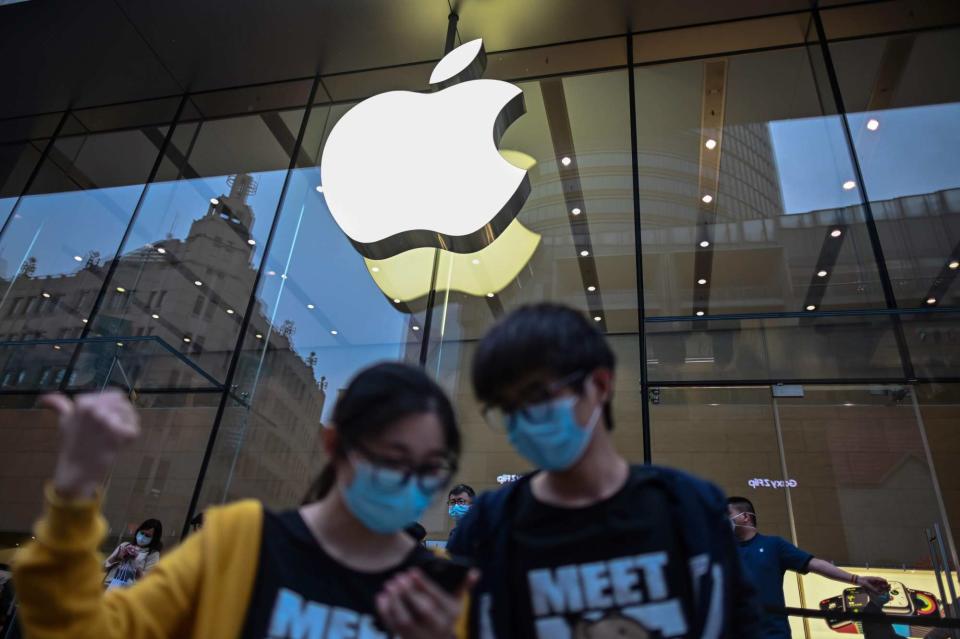Can Beethoven, Bach and Mozart help iPhone sales in China? Apple to launch classical music app on mainland amid sluggish demand for its flagship product
Apple will soon make its classical music app available in mainland China, expanding the US tech giant's digital services offering in the world's largest smartphone market where sales of the iPhone are seeing a deepening decline.
The Apple Music Classical app, which was launched in most markets globally in March last year, will make its mainland debut on January 24, according to the company's online China App Store. The app - touted by Apple as the world's largest classical music catalogue, with more than five million tracks - can now be pre-ordered by iPhone users in the country.
On the same date, the stand-alone app will also be available in five other East Asian markets that include Hong Kong, Macau, Taiwan, Japan and South Korea, according to a post on Tuesday by Apple on X, formerly Twitter.
Do you have questions about the biggest topics and trends from around the world? Get the answers with SCMP Knowledge, our new platform of curated content with explainers, FAQs, analyses and infographics brought to you by our award-winning team.
The app's launch is likely to bolster Apple's major digital services business in China, which remains the company's largest market in terms of App Store-related revenue.

China generated US$570 billion, or 51 per cent, of total billings and sales facilitated by Apple's App Store ecosystem in 2022, according to a study by consulting firm Analysis Group that was published in May 2023. Photo: Agence France-Presse alt=China generated US$570 billion, or 51 per cent, of total billings and sales facilitated by Apple's App Store ecosystem in 2022, according to a study by consulting firm Analysis Group that was published in May 2023. Photo: Agence France-Presse>
China accounted for US$570 billion, or 51 per cent, of the total US$1.1 trillion in billings and sales facilitated by the App Store ecosystem in 2022, according to a study by consulting firm Analysis Group that was published on Apple's website in May last year.
By comparison, the United States generated US$273 billion, or almost 25 per cent, of the App Store ecosystem's overall billings and sales in 2022. Europe accounted for US$119 billion, or 11 per cent, of that year's total.
Whether the classical music app's local release would somehow help lift iPhone sales on the mainland remains to be seen, as consumption remains weak across the country and Apple faces stiff competition from major Chinese smartphone rivals.
In the first week of the year, iPhone sales on the mainland were down 30 per cent year on year, according to a Jefferies research note published on Sunday. The brokerage indicated that there was "a big rise in discounts" for the iPhone 14 and 14 Plus models, while the newer iPhone 15 and 15 Plus models saw "a moderate rise" in discounts.
Chinese smartphone vendors, with Huawei Technologies, Xiaomi and Honor leading the pack, had "much stronger" momentum during the period, with sales delivering "flattish growth" year on year, Jefferies analysts led by Edison Lee wrote in the note.
The iPhone's total sales volume last year on the mainland was down 3 per cent from 2022, which translated to a 0.4 per cent decline in Apple's market share, according to Jefferies. It estimated that rival Huawei saw its mainland market share in the December quarter gain 2 per cent from the previous quarter, and 6 per cent year on year.
Apple is expected to see "even higher revenue pressure" on the mainland in 2024, according to Jefferies.
Still, Apple has continued to reassure investors even though iPhone sales have been slowing. In the firm's earnings call in November, Apple chief executive Tim Cook said: "Over the long term, I view China as an incredibly important market, and I'm very optimistic about it."
Cook made two visits to the mainland last year, meeting senior government officials, Chinese developers and Apple's contract manufacturing partners.
This article originally appeared in the South China Morning Post (SCMP), the most authoritative voice reporting on China and Asia for more than a century. For more SCMP stories, please explore the SCMP app or visit the SCMP's Facebook and Twitter pages. Copyright © 2024 South China Morning Post Publishers Ltd. All rights reserved.
Copyright (c) 2024. South China Morning Post Publishers Ltd. All rights reserved.
